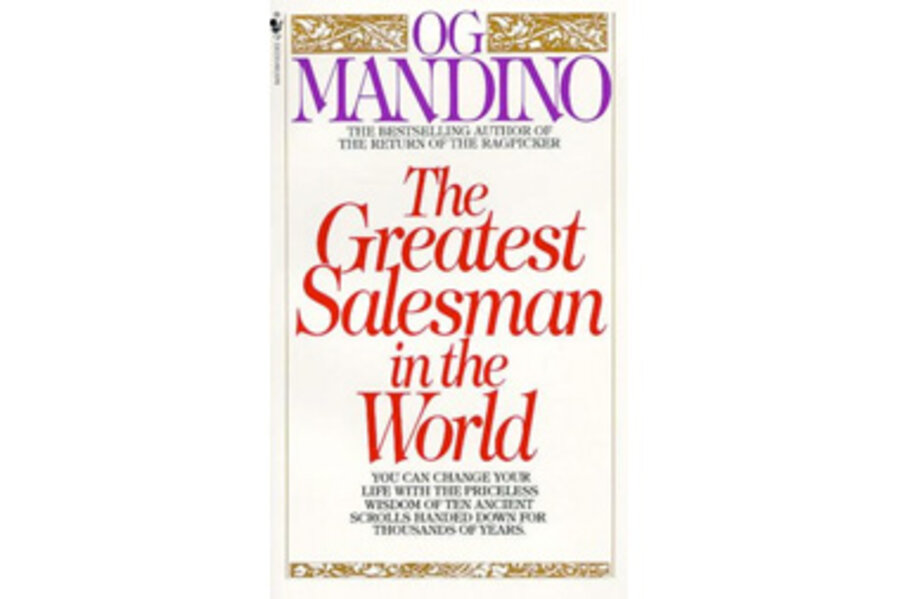After serving in World War II Og Mandino found himself with a severe drinking problem and a flagging career as a salesman. When his wife left him – taking their child with her – he was on the verge of suicide, but decided to look into self-help books before he did. What he read, he later said, changed his life and eventually helped him to stop his destructive drinking. He became a bestselling author, publishing his major work "The Greatest Salesman in the World" in 1968. In this book, Mandino uses a fictional character named Hafid, who encounters various Biblical figures throughout his life. The book includes Mandino's "10 Vows of Success" which he says readers can follow to find a satisfying life. These include actively defining goals and avoiding self-pity. Mandino said his works were inspired by the Bible and influenced by Napoleon Hill, W. Clement Stone, and Emmet Fox. He believed fervently in learning from one's own mistakes and wrote, "Every defeat, every heartbreak, every loss, contains its own seed, its own lesson on how to improve your performance the next time.”





